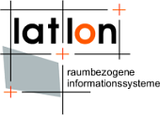FOSS4G 2009 Tutorials
Tutorials
12 90 minute tutorials will be held on Thursday October 22 and Friday October 23. with particular emphasis on the following topics:
- Practical introductions
- Interoperability
- Spatial data accuracy
- Spatial data privacy
- Data migration
- System implementation
- Data security
Tutorials
It is our pleasure to end the speculation on tutorials for FOSS4G in October. While the full descriptions won't be published until closer to the opening of registration, here is the final list:
Guidelines for tutorials
Tutorials offer you the opportunity to share your knowledge and passion for your favorite application, intregration solutions, technology or other topic in bite-sized pieces.
Tutorial rooms will not be equipped with computers so any hands-on aspects are the responsibility of the presenter and must be stated; the tutorial may recommend participants to bring their own laptop. Most laptops can be expected to be running some version of the Windows operating system. Preference will be given to hands-on tutorials.
FOSS4G LiveDVDs, based on the Xubuntu operating system, will be available at the conference and supplied to all attendees. These may be used in the Tutorials, or installation of software packages provided by the presenter may be part of the tutorial. Any presenter that is to make use of the LiveDVD is expected to test their tutorial against it during its production to ensure it will meet your needs. To discuss your requirements for LiveDVD, please contact the organising committee
Presenters are encouraged to make use of scenarios and on-site data from the Climate Change Integration Plugfest (CCIP) if appropriate. This is especially critical as demand for access to data over the internet is expected to be very high, and Australia has notoriously slow connections to the outside world. Contact details for the CCIP are available at http://external.opengis.org/twiki_public/bin/view/ClimateChallenge2009/WebHome .


















